Does Bacon Have a Place in Our Current Wellness Culture?
Bacon: A Love Story
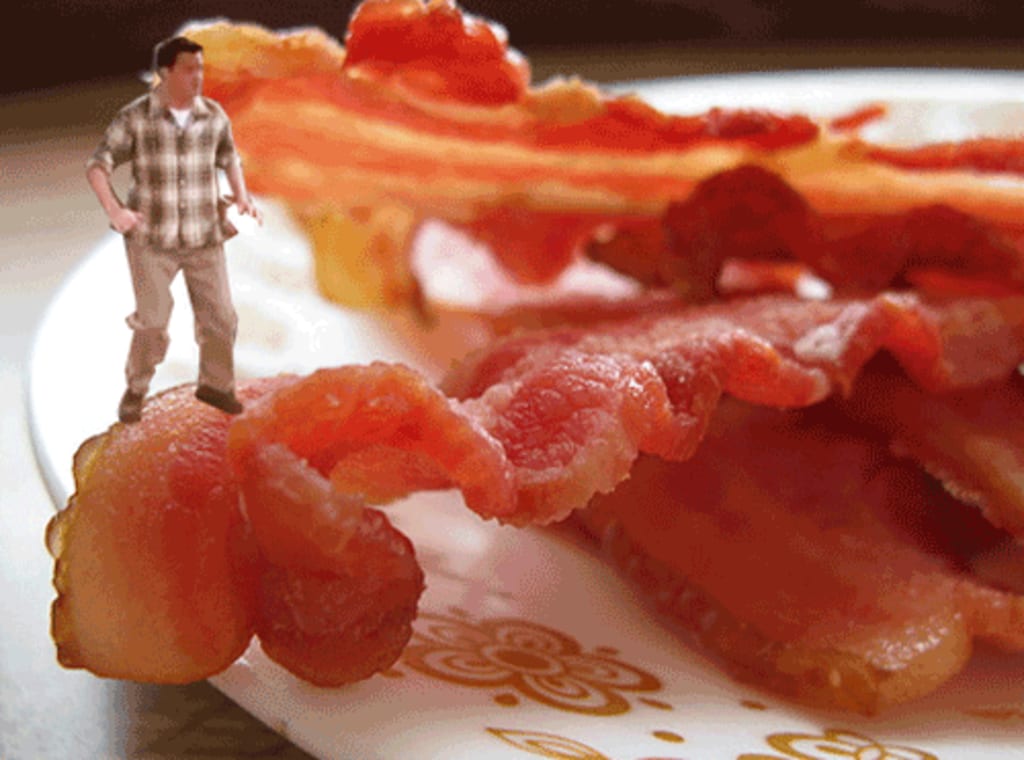
When I was a kid, before I even opened my eyes to wake up, I’d hear the crackling and sizzling sounds of a few strips of bacon being fried in a pan. I knew it was only a matter of time before the smell of hickory glory was going to reach the air around me. There is no better way to wake up than to the sound and smell of some mouthwatering bacon in the morning. To think that it was a scent becoming less and less frequently is to deny a sense of life itself.
“Why would you eat all that grease?,” I was asked one morning while I was chowing down on some bacon. If not for anything, isn’t the love for bacon an obsession that has been passed down from generation to generation? It always appeared so until it was bestowed upon my generation to pass the torch. Have Millennials’ dire needs to remain solely focused on health put the final nail in the coffin of bacon and the like? We should certainly hope not.
There was a rumor circulating earlier this year that there was an apocalyptic bacon shortage on the horizon. That farmers refused to slaughter their pigs and meet the demands of organic food industries. However, this was later proven to be a hoax. However, that does not mean that the bacon is off the hook (so to speak). Here’s what is true: the stock for bacon has plummeted for the first time since 1957 and has continued to sway downward since the beginning of 2017. In anticipation of the decline, farmers and pork industries are preparing for an 80 percent increase in sales prices. That’s right. The price you once paid for bacon at $8–10 a pound may be fluctuating to about 80 percent—making that sweet smell of bacon a little more expensively priced than it ever was.
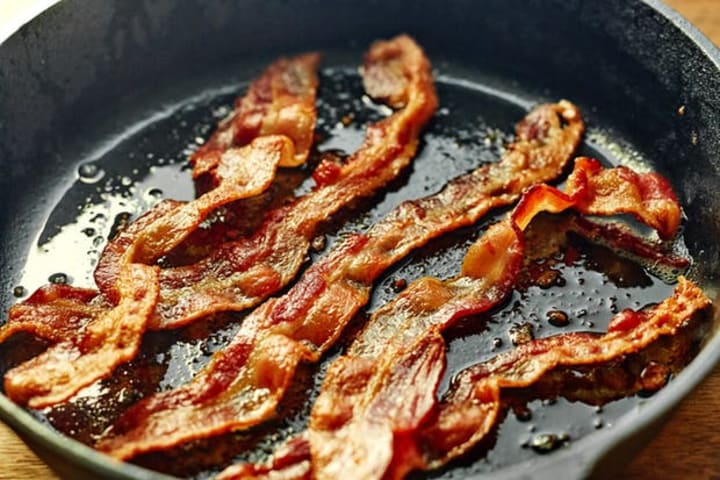
It’s fortunate enough news for Wilbur the pig but unfortunate for those who enjoy the dark roasted taste of him. So, what happened? Our obsession for bacon was once unprecedented in this country. When products needed a boost, companies would just add bacon to it and call it new. And America was more than happy to bite the bait. The possibilities are endless when it comes to getting your bacon-fix—we have been graced with bacon-flavored potato chips, popcorn, crackers, bread, mayonnaise, and the not-too-stellar bacon flavored soft soda. And if bacon soda didn’t sound appetizing enough, the odd food choice was acquainted to the alcohol world with the even worse sounding bacon martinis.
The key is that we used to be that culture. Now we are this culture. A culture that has traded in an obsession for greasy bacon for the greasy barbell handles at the gym. Our new obsession is wellness.
CrossFit and Boot Camp fitness programs are the reigning champs when it comes to trending fitness regimens. It’s no coincidence that they are either; the promise of being in the best shape of your life is nothing short of their enigmatic motto to Millennials. It is the current embodiment of the new and healthy future of America. It was a land where you were once considered un-American if you didn't slap on a couple of slabs of juicy bacon strips on a scorching grill. We are a generation of traders now, already trading in whole milk for 1 percent, already trading in calorie-dense potato chips for baked or no trans-fat, already blending together any and all things green and vegetable into a cocktail euphoria of health. Did you know that there are thousands of more marathons this year than there were 20 years ago? Millennials are in it for the long run. They are developing a much more fit and luscious future that’s miles ahead of them.

And it is carrying over into their jobs as well. Millennials no longer see our current occupations as 9–5 burdens but, rather, an extension of themselves. In doing so, they do not see working out as something that should be within the confines of their personal lives. Corporations and companies alike have been complementing employments with wellness programs to cater to this cultural obsession.
Google has one of the best wellness programs offered to their employees with gyms located in many of their facilities. Gym memberships and health insurance are both jointly associated with many of today’s jobs. Know your employees and cater to their needs—it is a philosophy that many employers hold dearly—they are, after all, helping you make your money—it’d be in your best interest to feed into their fitness fad. Cigarettes are no longer the benchmark of rebelliousness against the status quo—now we have a Jamba Juice stand in the lobby.
The era of junk food-filled vending machines in the hallway is a bygone one. The preferences of today’s generation is a particular one. A posh generation that settles for nothing less than the most exquisite of fine dining snacks. Advertisers know this and have set into motion a chain of gimmicks that walk a fine line between FDA regulations and moral bankruptcy. We like seeing the word “reduced,” especially if it is in front of the word “sugar,” but “reduced sugar” could also mean 1 percent less sugar than usual. Or, a personal favorite, products that claim to have zero trans fat but are made with hydrogenated oil, AKA trans fat.
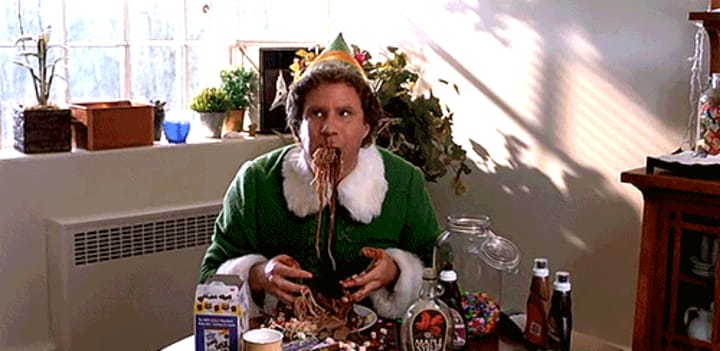
We are a generation that is far more concerned with the future than previous generations (not that you could blame us). In our effort to stay healthy and fit we are also preventing any declining health in the future. Millennials are more likely to choose products poised with calcium, fiber, and vitamins and minerals when grocery shopping. At our current rate, Millennials have already been expected to live longer than the age that our parents will, which is a pretty scary thought at that. There is just no room or inclination to indulge in many of life’s splendors such as oily, salty bacon.
This sudden pork pariah is only furthered if you consider that a single strip of is 45 calories and already a good portion of your daily salt intake. Bacon has enough of an insalubrious impact to thrust your Fitbit into a heated overdrive malfunction. Simply put: bacon has no place in our sudden departure into health ecstasy. Even the Continuous Update Project, CUP, the leader in scientific literature on food, nutrition, and health, has branded bacon as officially cancerous. 68 percent of bacon’s calories is trans fat and, when cooked, nitrosamines combine with amino acids to increase the probability of bowel cancer.
You read that right. You probably already knew that bacon was not the healthiest of choices, but to label it on par with cancerous cigarettes is a bit of a traumatizing feeling. Kind of like already knowing that your favorite chocolate bar is not healthy, but finding out that it is literally slowly killing you. You’d never look at a Snickers bar the same way again, would you?

To be less coy about it, however, social media platforms have only served to the added pressure of staying fit. If the search for a bountiful and endlessly prosperous life of health and wellness was not narcissistic enough, Millennials with a sense of means, in their tech savvy ways, often resort to social media to keep you updated on their newfound interest in fitness. Instagram, Twitter, Facebook, Snapchat—they all serve as little daily reminders about those who are doing far better than you somehow. The fitness movement and social media is the typical meet cute love story we’ve all come to groan at. They cannot stay away from each other and every time they’re together, you’re left thinking that you’ll likely never be as happy. It’s a digital soapbox for the gymrat connoisseur to spout out their gospel of endless gains or to document each square foot they take during their journey to pilates class. Diet and exercise are key and everyone has an opinion on the matter and no one wants to be appear deficient nutritionally.
And no, we are not interested in hearing about your day to day struggles Livin’ In a Vegan Paradise. While I commemorate anyone willing to take the plunge of swearing off meat and dairy products cold turkey (pun intended), it is the regurgitating images on Snapchat that take it a step or two too further. At what point do you stop counting the days that you’ve been vegan sober? Can we agree on the cut off at Day 12?
This is probably why the Paleo diet was such a trending regimen a while ago. It went from a spiritual fad to live like neanderthals and became movement to avoid processed food all together. People began growing tomatoes and berries on their apartment fire escapes—Instagramming each and every step of the photosynthesis process. What makes it a fad is the lack of scientific evidence to back up such a life-altering method. Processed food tends to have more sugar and sodium in their production, sure, but they also differentiate the diseased food from the healthy ones. A minimal but dire difference that left the average age of Paleolithic beings at 54.

So are you ruining you life by eating bacon? Well, if you consider the fact that CUP also listed a lot of de-aging creams as cancerous, it kind of leaves you wondering if there is more to bacon than just the platitudinal solid grease we know and love. Pork, in general, has every bit the nutritional value that a Millennial yearns for in the Paleo diet. Bacon, in turn, contains all the vitamin and minerals we need for a healthy lifestyle: B12, potassium, iron, magnesium, zinc.
Of course, most Millennials will never get past the sight of droopy oil droplets oozing out of a bacon strip, especially if detoxing is a trending treatment rendezvous that many go to in groups to cleanse their bodies and then tweet about it. Camaraderie, after all, is a key component of why this wellness culture is in full swing. It is why we have gym buddies to spot us, have a running mate along side us in a marathon, or go to smoothie bars with friends. Plus, you’re never really alone since you can share your journey on Instagram for others to see. So, why can’t we all band together and share our love for the forgotten bacon?
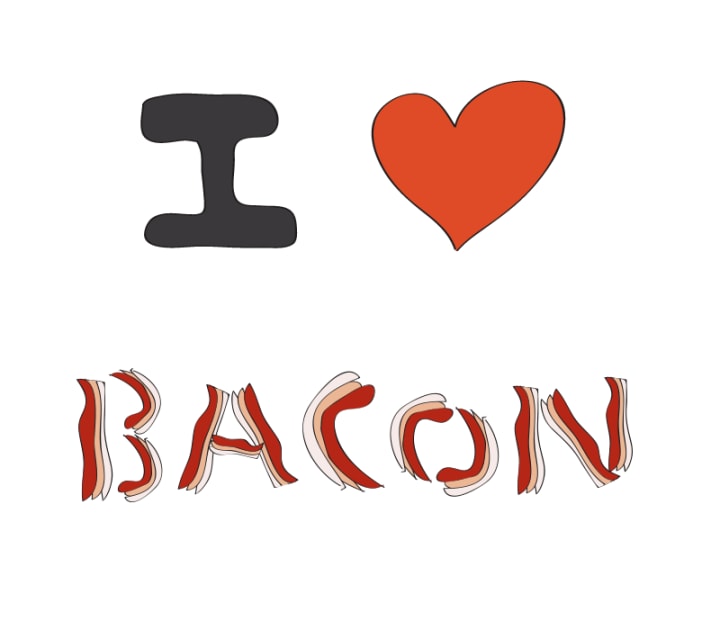
Here’s the thing: bacon is not going anywhere any time soon because there is still a demand for it. Sure, we still have older generations who enjoy a strip or two, but I was ecstatic to learn that I was not the only Millennial concerned with its problematic position. There have been countless Bacon Explosion blogs as of late that encourage the experimentation of the smoky bacon flavor with some of our other favorite dishes. Millennials have even migrated to other forms of bacon such as turkey and Seitan vegan (although nowhere near as good). There was the Eat More Bacon movement that commercialized recently with T-shirts and merchandise publicizing on our tumultuous relationship with bacon as if it were a religion and those who advertised it were its apostles. Bacon will save the world. I don’t know how, but it will. A personal favorite.
The verdict? Well, if you’re anything like the Millennials championing our current wellness culture than think of it through this perspective: if you spend your workout doing five to ten sets of deadlifts, you are working out everything from your spine all the way down to your hamstrings. It is a hell of a workout and one with loads of controversy since it can easily lead to injury if not done correctly. Either way, you are probably a smart gym fanatic and you know that you should not be doing deadlifts every single day. You need a day off in between the workout to let your muscles break and rebuild. It is sort of the same when it comes to bacon. Like everything else in our complicated world: moderation is the name of the game.
About the Creator
JMM
I'm a freelance creator and writer based in Chicago. "Don't talk unless you can improve the silence."



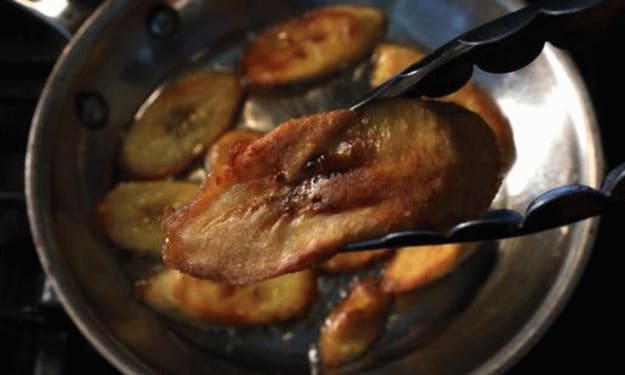



Comments
There are no comments for this story
Be the first to respond and start the conversation.